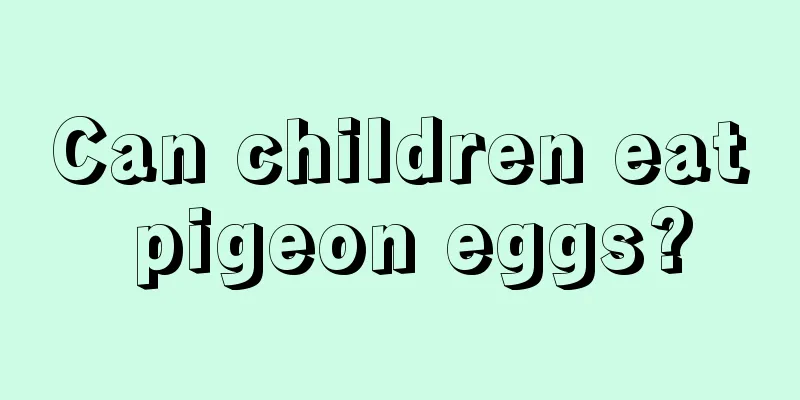Why do children always drool?

|
Why do children always drool? Moms see their children drooling but don’t know why. Is this normal? Or is it because the child is sick? Will this situation follow the child throughout his life? Questions came one after another like the tide. To answer mothers’ questions. I have summarized the reasons why children always drool and what to do when encountering this problem. It takes time for a baby to drool. Newborn babies do not drool because their salivary glands are underdeveloped and secrete less saliva, so there is no excess saliva flowing out of their mouths. In addition, the baby's staple food at this time is milk or liquid food, which does not stimulate the salivary glands much. The teething period is the time when babies drool most frequently. When the deciduous teeth erupt, the small teeth push outward from the gums, causing mild swelling and discomfort in the gum tissue, stimulating the nerves on the gums, and causing the salivary glands to reflexively increase saliva secretion. As the baby grows and develops, children who develop faster will stop drooling when they are one and a half years old, and most children will gradually and effectively control their swallowing movements before the age of two as their muscle motor functions mature. Therefore, it is normal for babies to drool. However, since saliva is acidic and contains digestive enzymes and other substances, they will not invade deeper layers because of the protection of the mucous membrane in the mouth. However, when saliva flows onto the skin, it can easily corrode the outermost stratum corneum of the skin, causing skin inflammation and triggering pediatric skin diseases such as eczema. So when your baby drools, you should pay attention to the following points: 1. Wipe off his saliva at any time. Do not use force when wiping. Just wipe the saliva gently to avoid damaging the local skin. 2. Use warm water frequently to wash away the saliva, and then apply oil to protect the skin of the chin and neck. It is best to put a bib on your child to prevent saliva from staining his clothes. 3. The handkerchief used to wipe the baby's saliva should be soft and made of cotton, and should be washed and ironed frequently. 4. If the baby drools severely, you should go to the hospital for a check-up to see if there are any abnormal symptoms in the baby's mouth, whether the swallowing function is normal, etc. In addition, when a child sleeps on his stomach, drooling will not have any impact on him. The pillow just needs to be washed and dried frequently to prevent bacteria from breeding inside. Now you understand why children always drool? Do you remember what you need to pay attention to when your child drools? When children are young, everything is just beginning to develop, so many problems will arise. I hope mothers will be patient with their children and not let momentary negligence become lifelong regret! I hope this information can be helpful to you! |
<<: What are the reasons why children drool at night?
>>: What to do if a one-year-old child is calcium deficient
Recommend
What is the role of blood test for infants?
Many mothers do not understand the purpose of hav...
What are the symptoms of colic in children?
Do parents know about the symptoms of colic in ch...
What should I do if my child has a cold and fever?
Colds are a very common disease in children. They...
What should I do if my child has a bad temper?
Babies have poor self-control and bad moods come ...
How to treat nausea and diarrhea in children?
The baby's nausea and diarrhea are mostly cau...
Treatment of urticaria in children
Children are the bond that holds a family togethe...
Can a newborn baby be bathed every day?
Bathing a newborn every day is very bad for the n...
Symptoms of a child having a fever due to shock
Unlike adults, children's organs are not full...
What is the cause of the child's chicken swelling?
Swelling of children's genitals is mostly cau...
What causes a child to have a cold and a stomachache?
Children are very prone to catching colds. They m...
Is it dangerous to do MRI for babies?
Some children suffer from internal diseases, so t...
What dietary treatment should be used for children with cough and phlegm
What should you do if your child has a cough? You...
How to correct a child’s stuttering?
Some parents have found that their children have ...
Why is my child's urine yellow?
Children's ability to express themselves is a...
What should I do if my baby has repeated colds?
Babies are a relatively vulnerable group among ou...









